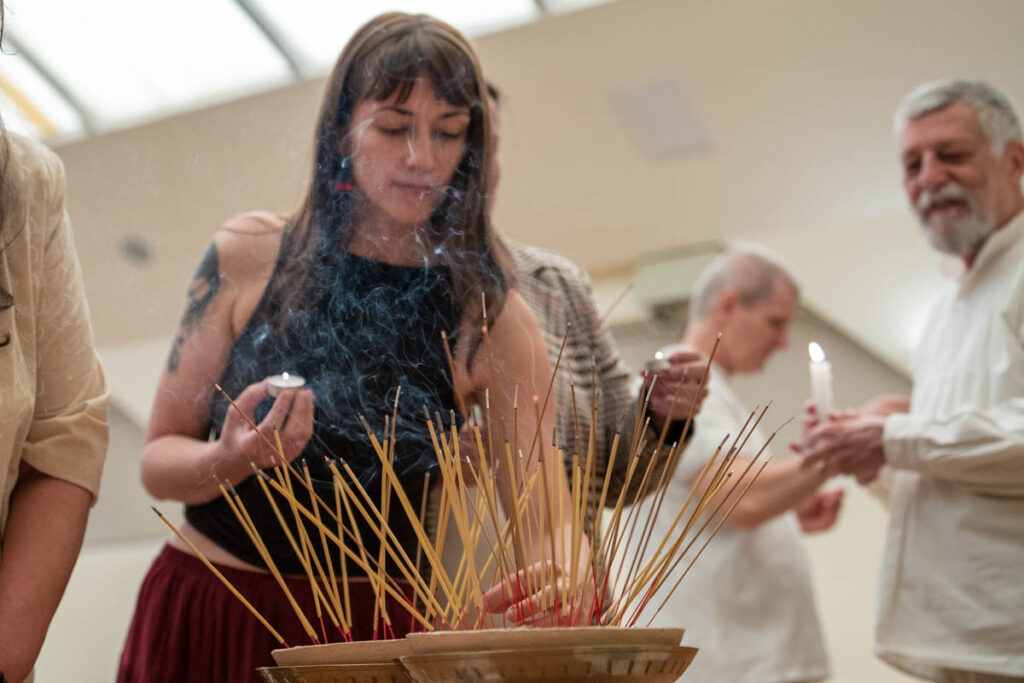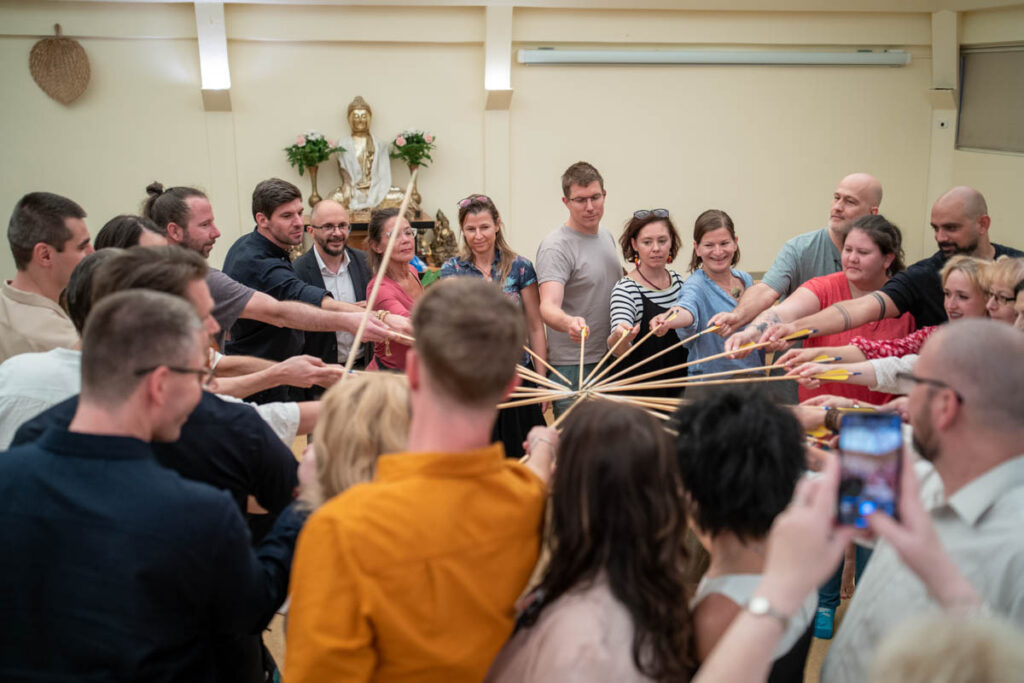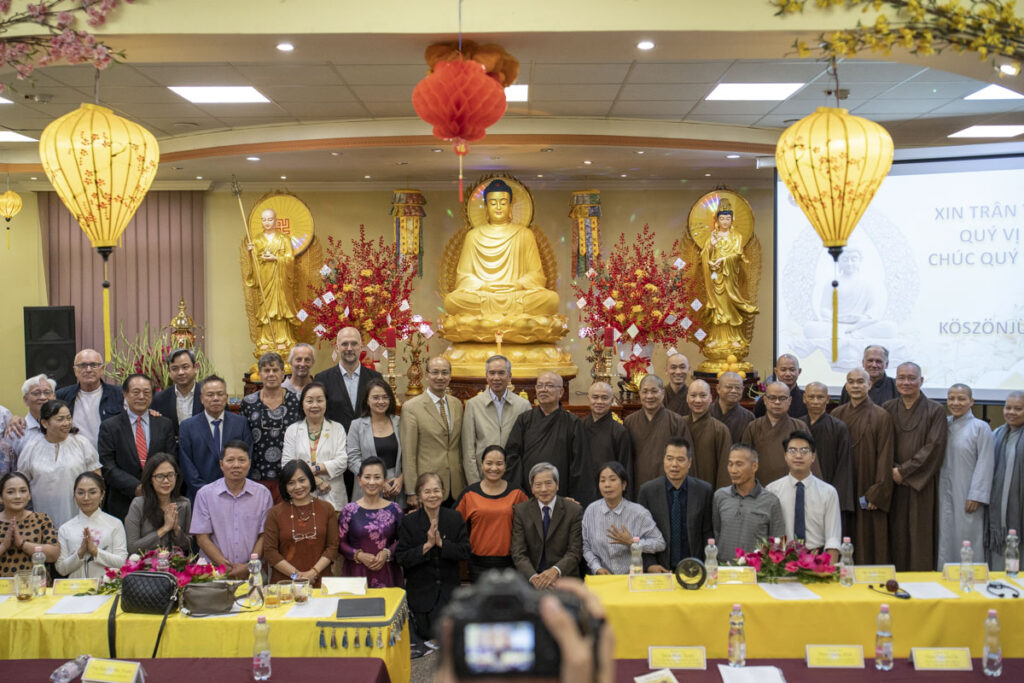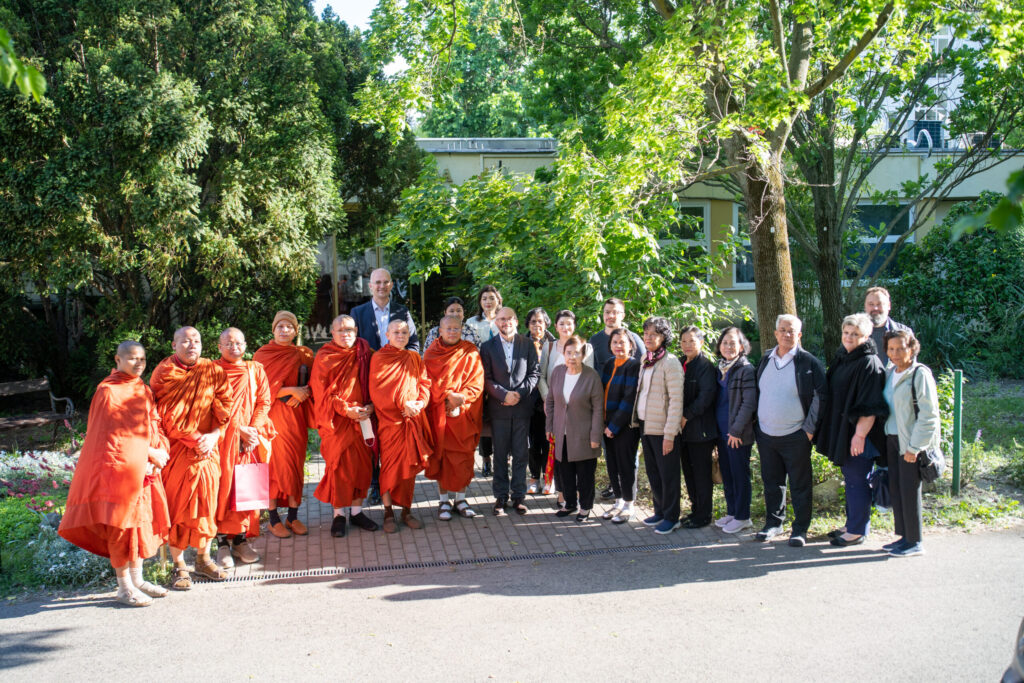
- Featured news, News





Tenured Lecturer at Dharma Gate Buddhist College
(Classical Tibetan Language, Tibetan Buddhist Philosophy, and Buddhist Symbolism)
As a child, I dreamed of speaking many languages and traveling the world, visiting famous and yet undiscovered places of the ancient world, and even using my language skills to decipher writings and texts that would be of great significance to the world.
Dream and True Knowledge of Reality
Of course, the path from dream to realization is not always a straight one, and the realization is never exactly as we once dreamed it. I found the opportunity to work with Eastern cultures, including the Tibetan language and cultural sphere, relatively late. However, since then, my commitment has been unwavering. (A few years later, I also became familiar with the Slavic Macedonian language, to which I have a similar strong connection.)
When I learn a language, for me, it’s never just about memorizing language books. It manifests at many levels beyond that. I also want to be a member of that people, to be a good acquaintance of their culture. I try their foods, taste their drinks, listen to their music, read their stories, watch their films, research their customs, explore their folklore literature, and their religion. If possible, I travel widely in the country and talk to both the elderly and the young about various topics. If such travels are not possible, I turn to watching videos on various subjects.
When I teach Classical Tibetan, I try to impart the love for the language along with the culture. I enjoy making the lessons more colorful by sharing my previous knowledge and research. In my doctoral dissertation, I dealt with Tibetan proverbs, and I often incorporate simpler proverbs, riddles, and shorter folklore literary texts as translation exercises in my language lessons.
Modernity Can Help
At the same time, I enjoy and use the “inventions” and innovations of the modern world that assist and make the memorization phase of language learning more enjoyable. Various apps, flashcard programs (Quizlet, Memrise), online dictionary programs—which can look up a word’s meaning from 25 dictionaries at the push of a button—short instructional videos on writing are a huge help.
Translations Alone and Together
In the future, I would love to create a versatile translation group, where we could work on texts on a wide variety of topics, starting with Buddhist religious texts, but also touching on folk religion, historical writings, folk tales, and works belonging to the small epic folklore genres.
My translations have also focused on these topics. I’ve translated Buddhist texts, proverbs, an entire opera text, and folk tales from Tibetan. From Macedonian, I’ve translated folk songs (related to my upcoming dissertation on the Macedonian language), poems by contemporary poets, and short stories.
Repetition, Reflection, Interpretation, Creativity
What I really enjoy about teaching the 37 Bodhisattva Practices related to Tibetan Buddhism is that it involves both reviewing and rethinking the basic Buddhist teachings and interpreting their relevance to our modern world today. In the Buddhist symbolism classes, however, the “language” of artistic works is introduced and read creatively, and the end result is always a great product made by the students.
In my free time, I enjoy walking with my English Cocker Spaniel dog, Ében, cycling, walking in nature, and playing badminton.
Punblication list: available at the Hungarian Scientific Works Database